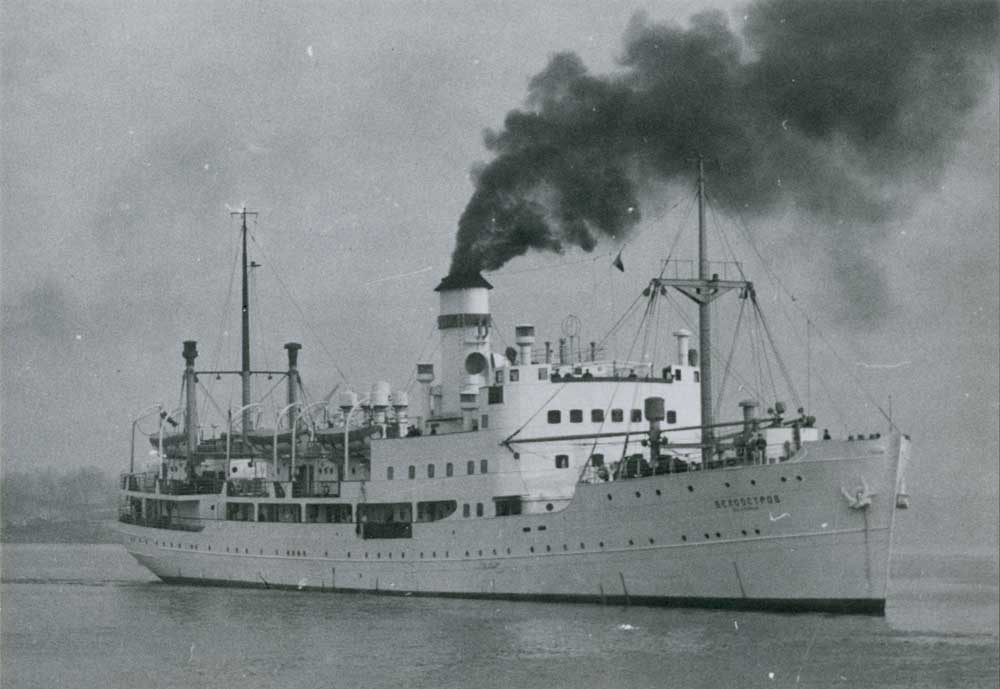Whatever the outcome of the Swedish elections this autumn, very little is likely to change in its foreign and security politics. This, for the simple reason that the country has neither resources of its own, nor strong, supportive allies.
It was with near lightning speed, that the Swedish coalition government, in the summer of 1940, recognized the Soviet occupation and annexation of the Republic of Estonia. Subsequently, the Foreign Ministry called on Estonia’s Ambassador in Stockholm, Heinrich Laretei, perhaps better known as the father of the pianist and author Käbi Laretei, to hand over his embassy’s keys to the Soviet Union’s Embassy in Stockholm. Laretei refused, of course, but the situation became untenable. Instead, he left his keys and the responsibility for the entire Embassy to the Swedish authorities, the Swedish Foreign Ministry, which subsequently handed the country’s embassy, “Estonia in Stockholm”, to Stalin’s Soviet Union.
This was not Sweden’s first betrayal of its principles, either before, nor during or after the second world war. Well known to the media is Sweden’s negative attitude towards Jews who were fleeing Nazi terror . The Swedish Government’s notorious inaction and Prime Minister Per Albin Hansson’s muted statement in response to the Soviet attack against Finland, which started The Winter War, is well recognized. It was criticized heavily not just in Finland and by friends of Finland in Sweden, but also by Swedish King, Gustav V. Norway also hoped for more aid and support from Sweden when in April 1940 Nazi Germany occupied the country. But Stockholm even refused to issue a transit visa for the fleeing Norwegian King Hakon VII. For years then Sweden allowed thousands of German occupation soldiers on leave to pass safely back and forth to Norway through Sweden. In the summer of 1941 the German Wehrmacht’s Engelbrecht Division was allowed to transit through Sweden from Norway to Finland.
In the same spirit of the appeasement, the fate of Swedish diplomat Raoul Wallenberg, who saved the lives of thousands of Hungarian Jews, was allowed to be dictated by the Abakumovs and Berias of the Soviet Union. We still aren’t sure what happened to him, when, or how.
BALTIC WAR REFUGEES

From the Estonian perspective, all of Sweden’s other foreign policy aberrations are overshadowed by the “Baltic Extraditions.” The dramatic operation to extradite Baltic refugees back to the Soviet Union was decided in 1945 by the coalition government, but wasn’t fully executed until January 1946. Shortly before that, parliamentary elections had given Sweden a new, purely Social Democratic government. With the help of heavily armed police, the government carried out the forced extradition of Baltic military refugees. Among the 146 Balts were eight young Estonians who were dragged by Swedish police across the dock at Trelleborg and forced on to a Soviet ship, “Beloostrov”.
The “Baltic Extradition” and Foreign Minister Undén’s statements about the Soviet Union respecting the “rule of law”, set the Social Democratic tone for Swedish foreign policy for decades to come. Subsequently, around 1950, thousands of Baltic refugees in Sweden, re-emigrated to the United States and Canada. It was only in the early 1990’s, under Carl Bildt’s government, that the Swedish policies towards the Soviet Union/Russia changed. “Team Bildt” with Margareta of Ugglas, Anders Björck, Lars Peter Fredén and Lars Grundberg in Tallinn, undertook great efforts to restore the independence of the Baltic countries. The Swedish government even officially apologized for the “Extradition”. This positive attitude towards the Baltics continued during Göran Persson’s time as prime minister. Even the largest lecture hall at The Baltic Defense College in Tartu was named after Sweden’s Defense Minister Björn von Sydow.
It is well known that since then, the Swedish armed forces, step-by-step, degenerated into a marginal “special interest” thanks to Prime Minister Reinfeldt. At the same time, Sweden joined the EU. Feeble attempts have been made to fix Sweden’s defence policies by adopting broader security responsibilities for Sweden in the Baltic Sea region. Sweden’s defense spending is currently about the half of the 2% of GDP that’s required for NATO membership – this, despite smaller countries like Estonia, who have been meeting these requirements for years. For Sweden, meeting NATO standards, would require the doubling of defense spending, and no political party would even dare suggest doing this to Swedish voters.
“The one who is in debt, is not free,” said Prime Minister Göran Persson. This is equally true for those who do not have the resources, strength or courage to stand up for their democratic beliefs and maintaining on international order, regardless of what’s going on. Compare the situation today against Sweden’s policies above, during World War II.





